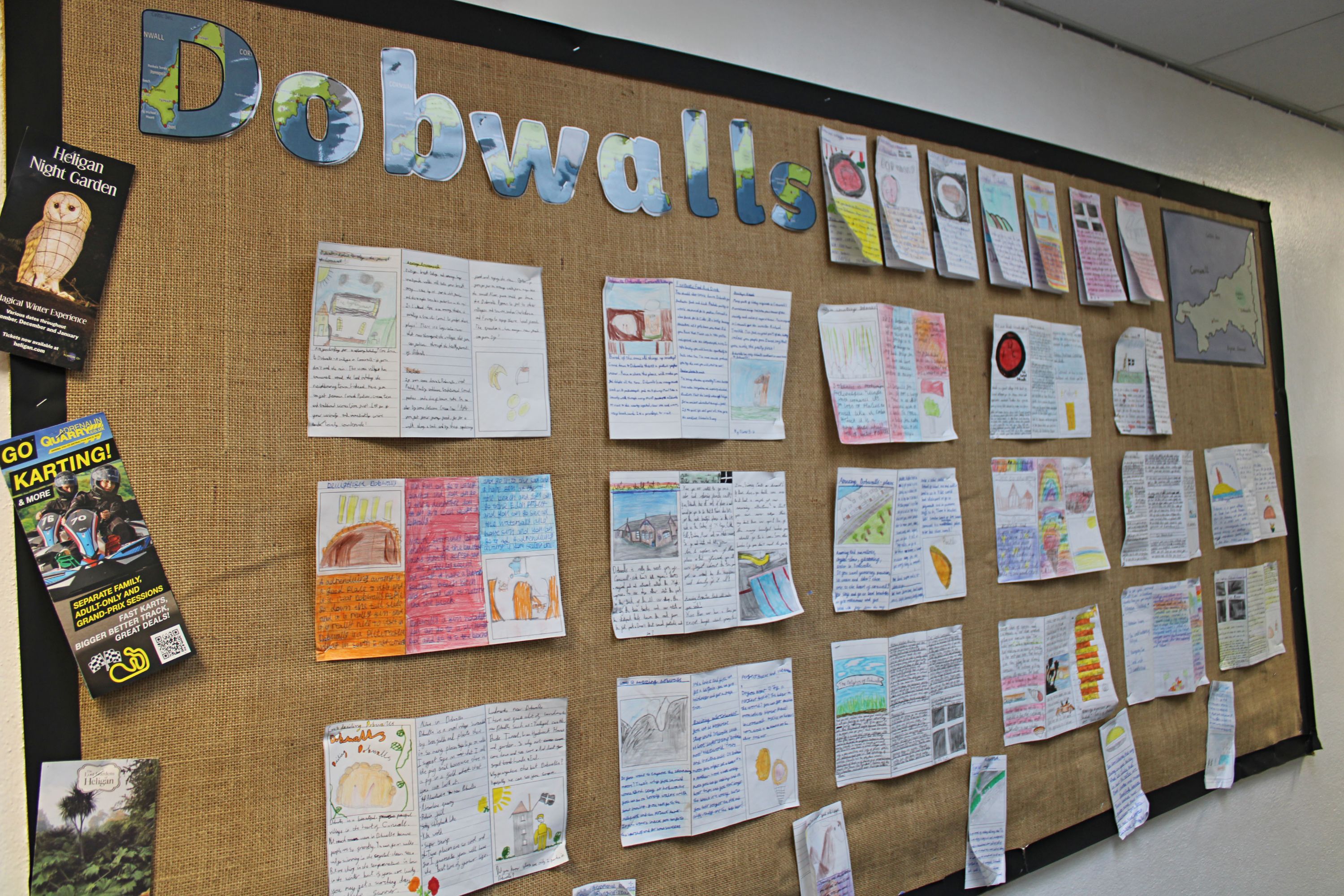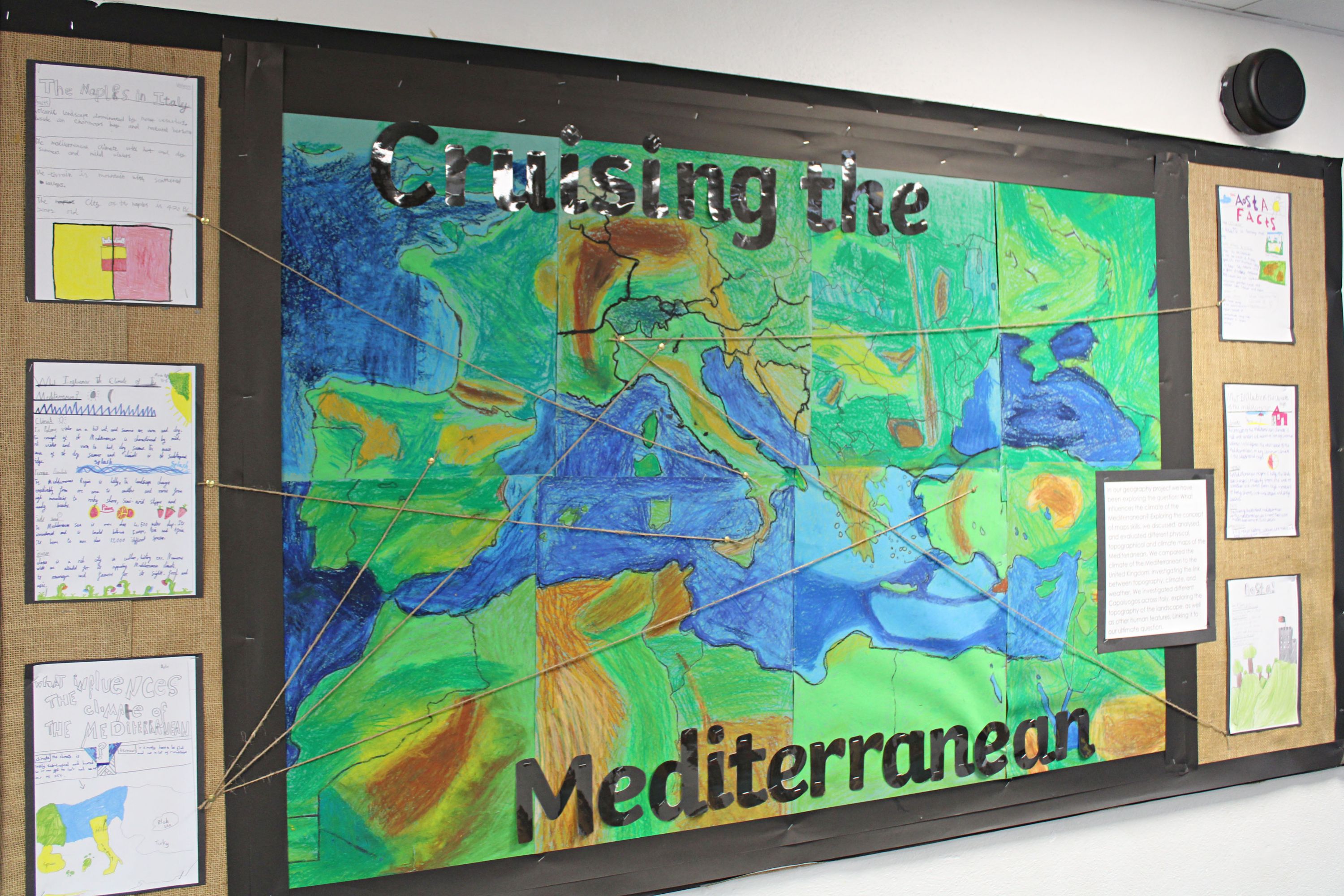Geography
Geography Intent:
At Dobwalls, we believe that Geography helps to provoke and provide answers to questions about the natural and human aspects of the world. Children are encouraged to develop a greater conceptual understanding and knowledge of the world, as well as their place in it, whilst instilling a love for the subject. The geography curriculum at Dobwalls enables children to develop conceptual understanding, along with knowledge and skills that are transferable to other curriculum areas and which can be used to promote their spiritual, moral, social and cultural development. Geography is, by nature, an investigative subject, and we seek to inspire a curiosity and fascination about the world and its people which will remain with them for the rest of their lives. It promotes the children’s interest and understanding of diverse places, people, resources and natural and human environments, together with a deep understanding of the Earth’s key physical and human processes. The curriculum is designed to progress throughout their time at Primary school and also to support conceptual understanding that will support their learning of Geography at Secondary school and beyond.


Implementation:
- Geography is taught in units throughout the year on a half-termly basis, so that children can achieve depth in their learning.
- Teachers have identified the key knowledge and vocabulary for each unit and these are taught using knowledge organisers across the school.
- Skills are planned progressively across year groups and this is again supported with a knowledge organiser per year group to ensure consistency and progression across our school. Children use a range of maps and atlases (both digitally and physically).
- Geography lessons are planned coherently to build children’s understanding progressively from their local area and into the wider world.
- Lessons develop the children’s understanding of geographical concepts: human geography, physical geography and place/map skills. These concepts are woven into the curriculum, so children revisit them each year. This spiralling around the concepts helps to build their understanding and helps them to structure the information so their memory also improves.
- All Geography lessons follow the National Curriculum and are linked to the topic being taught, allowing the children to build curiosity, ask questions and investigate answers in a variety of ways.
- Fieldwork opportunities, where possible, allows children to apply their geographical skills in a real-life settings. Such opportunities teach them how to explore their local area and the features within it.
- Where possible, Geography lessons make links to other subjects such as English, History, Science and Maths.
- Teaching is adapted to meet the needs of children with SEND.
- SECRET Skills are interwoven with Geography lessons to support our character education philosophy.


Geography Long Term Overview:
Dobwalls Geography Long Term Overview
Dobwalls Geography Concept Tracker
Geography SEND statement of intent
Geography KS1 Lesson Sequences
Geography KS2 Lesson Sequences
Our Knowledge Organisers:
Whole school geography knowledge organisers
Our Maps Skills Progression Organisers:
Map Skills Knowledge Organisers Y1-Y6
Geography Progression of Skills Across the School:
Progress of Skills at Dobwalls
Year Two - using maps walk in the village
Loveny Class were out and about and followed a map to Dobwalls Park each year in the Spring 1st half. They created a ‘route’ in class using Google Maps. On their way to the park, they answered their Big Question ‘What can you do in Dobwalls?’ They saw Spar, the church, the pub, a car park, a hairdresser, an antiques shop, a snooker hall, and the park!
Impact:
At Dobwalls, well planned and well taught lessons lead to children who develop good conceptual understanding of geography. Our spiral curriculum, combined with the use of knowledge organisers and progressions of skills in conjunction with the SECRET skills ensures children can think like a geographer and develop a solid schema for their future education. As children progress throughout our school, they develop conceptual understanding, deeper knowledge and understanding of their local area and its place within the wider geographical context as well as confidence of the location of other countries and cities around the world.
“I loved making a map of a village. I used blocks and pens, and it had a shop and a park. It was an aerial view.”
B, Y1
“I have found learning about the UK interesting, especially comparing it to other countries in the world. I enjoyed learning about weather systems and how they happen.”
A, Y5














